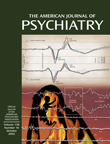About a quarter-century ago, former American Psychiatric Association President Alan A. Stone, M.D., wrote a seminal book on mental health and the law
(1). As one of the earlier tomes on the subject, Dr. Stone’s book has now taken its place among the classic works of forensic mental health.
Over the ensuing years, there has been an explosion of mental health case and statutory law that has given rise to many thoughtful, provocative, and incisive thinkers from the fields of psychiatry, psychology, and the law. During this time, forensic psychiatry has matured from an esoteric practice of a few to a recognized medical subspecialty in the United States. One of the premier forensic mental health think tanks, the Institute of Law, Psychiatry, and Public Policy at the University of Virginia, began operation in 1977. On the occasion of the Institute’s 20th anniversary, several prominent figures in the forensic mental health field presented papers that formed the basis for The Evolution of Mental Health Law. Editors Lynda Frost and Richard Bonnie undertook an enviable task when assembling the writings of many of the finest minds in forensic mental health. Professor Bonnie is well-known to psychiatry as he has assisted the American Psychiatric Association in its forensic mental health endeavors over the years.
The only faux pas in the book occurs in the preface, where the editors define “mental health law” and proceed to state, “In this broad sense, the phrase encompasses what is often described as ‘law and psychology.’ ” We can only hope that the omission of psychiatry was on the part of the copy editors of the publisher and not the esteemed editors. Evolution of Mental Health Law provides a fresh perspective to the legal changes and trends of the latter part of the 20th century and their influence on the mental health field and vice versa. Nearly every chapter is authored by a recognizable name in forensic mental health, including, among others, W. Lawrence Fitch, Thomas Grisso, Seymour L. Halleck, John Monahan, Stephen J. Morse, John Petrila, Elyn R. Saks, Christopher Slobogin, Henry J. Steadman, David B. Wexler, and Bruce J. Winick.
The most exciting chapter opens the book. Law professor Robert A. Burt offers a thought-provoking hypothesis to explain the ebb and flow of the cycles of repression and enlightenment in regard to those with mental disorders or disabilities and those who are African American. Curiously, the cycles in regard to these two groups have been dysphasic since the founding of the United States. Joseph J. Bevilacqua’s chapter highlighting the deficiencies in market-driven mental health services is must reading for all who expect to challenge the evils of managed care. Nearly all of the chapters capture the essence of the recent history in the forensic mental health arena from juveniles to psychoanalysis to death row and a myriad of other topics. Prominently mentioned in many of the chapters is the 1997 U.S. Supreme Court decision of Kansas v. Hendricks, which upheld the constitutionality of sexually violent predator laws. This case has engendered furious debate and will certainly be the point of departure for the “next” serious review of mental health law.
Similar to other multiauthored books, variability in writing styles cannot be avoided. However, the reader is for the most part treated to provocative and novel ways of viewing and reviewing the past two to three decades on the forensic mental health stage. One aspect of the book that some psychiatrists might find annoying is that some of the attorney-authored chapters are argued with a traditionally legal approach that lacks scientific grounding and in which anecdotal accounts form the basis of the principal points. On the other hand, this book conveys to psychiatrists and other mental health professionals the prominent role of attorneys in crafting mental health law and how they can become allies through “therapeutic jurisprudence,” as aptly described by Wexler.
Ordinarily, I would be hesitant to recommend forensic mental health books to anyone except those with a bona fide interest in forensic psychiatry and forensic psychology. However, this book rather eloquently captures the recent past, the present, and perhaps the near future of the forensic mental health field in which we all practice, whether as clinicians, researchers, teachers, consultants, academics, or attorneys, and would stimulate and enlighten all who open its covers.

